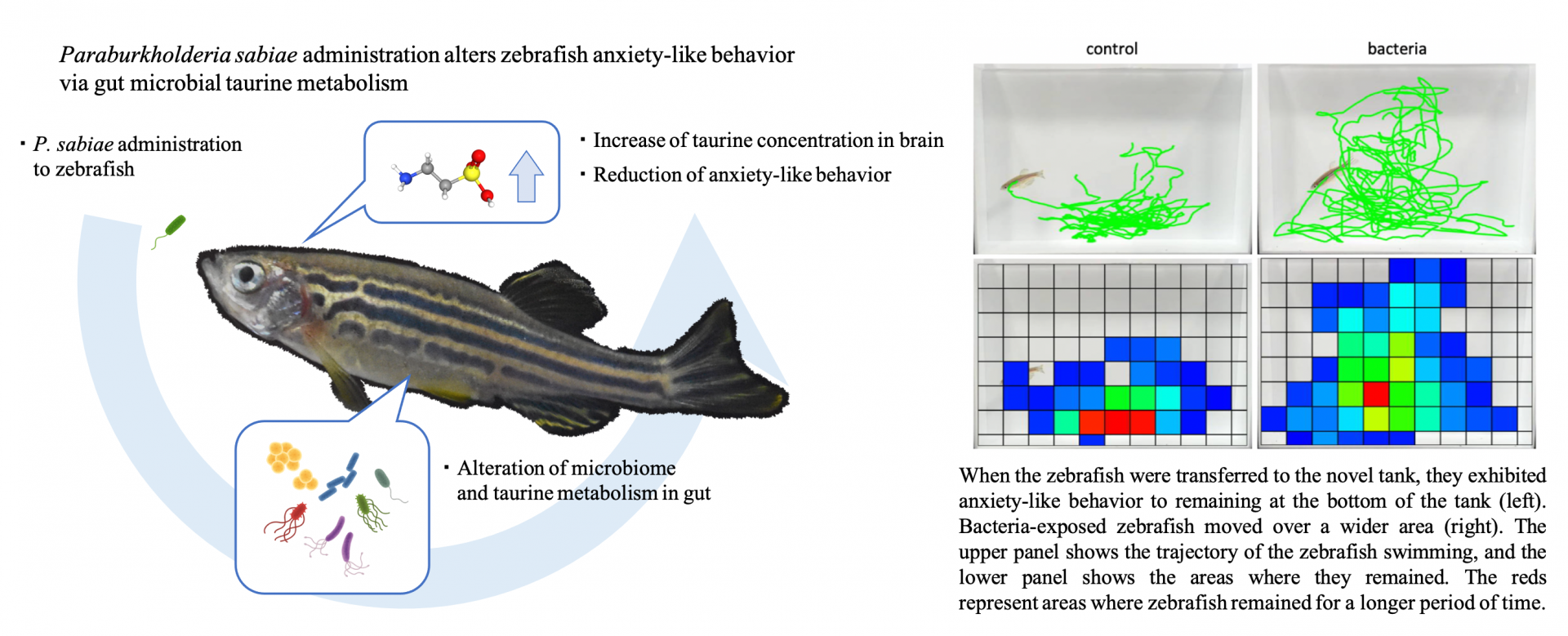Biochemistry
Applied Microbiology
Biotechnology

ICHIKAWA Shunsuke
Starting year 2023
Mie University
Faculty of Education
Associate Professor
Research fields
Research Interests
Environmental microorganisms
Gut microbiome
Microbial ecosystems
Metagenomics
Professional Memberships
Japan Society for Bioscience, Biotechnology, and Agrochemistry (JSBBA)
The Society for Biotechnology, Japan
The Molecular Biology Society of Japan(MBSJ)
The Chemical Society of Japan
Society of Japan Science Teaching
Main research topics
The gut microbiome affects brain development, myelination patterns, and host behaviors by modulating neurotransmitter synthesis in the gut and brain. Metabolites produced by the gut microbiome are distributed throughout all organs, including the brain, thereby affecting neuronal cell development and behaviors. It is reported that some lactic acid bacteria reduce stress-induced corticosterone as well as anxiety- and depression-related behaviors in rodents. In addition to probiotic studies, it is reported that a gut-derived molecule, 4-ethylphenyl sulfate, modulates anxiety-like behavior in mice by affecting oligodendrocyte function and myelin patterning in the mouse brain. These studies suggest the possibility that interventions to the gut microbiome manipulate the gut–brain axis and could be useful in the treatment of anxiety and depression.
Zebrafish (Danio rerio) is becoming a major animal model for neurobehavioral research. Zebrafish exhibit numerous behaviors that correlate with human neurological processes and disorders, such as anxiety, learning, fear, sociability, and psychosis. The zebrafish neurotransmitter system is similar to that of other vertebrates, including rodents and humans. We demonstrated that administration of the bacterium Paraburkholderia sabiae reduces anxiety-like behavior in adult zebrafish. P. sabiae administration increased the diversity of the zebrafish gut microbiome. The populations of Actinomycetales including Nocardiaceae, Nocardia, Gordoniaceae, Gordonia, Nakamurellaceae, and Aeromonadaceae were reduced, whereas those of Rhizobiales including Xanthobacteraceae, Bradyrhizobiaceae, Rhodospirillaceae, and Pirellulaceae were increased in the gut microbiome. Functional analysis predicted that P. sabiae administration altered taurine metabolism in the zebrafish gut, and we demonstrated that P. sabiae administration increased the taurine concentration in the brain. Since taurine functions as an antidepressant neurotransmitter in vertebrates, our results suggest that P. sabiae could improve anxiety-like behavior in zebrafish via the gut-brain axis.




Representative papers
Shunsuke Ichikawa, Reimi Abe, Haruka Fujimoto, Koushi Higashi, Liqing Zang, Hiroko Nakayama, Izumi Matsuoka, and Yasuhito Shimada, ”Paraburkholderia sabiae administration alters zebrafish anxiety-like behavior via gut microbial taurine metabolism,” Frontiers in Microbiology 14 (2023) 1079187
Shunsuke Ichikawa, Daisuke Ito, Sayuri Asaoka, Reimi Abe, Norito Katsuo, Toshiyuki Ito, Daichi Ito, Shuichi Karita, “The expression of alternative sigma-I7 factor induces the transcription of cellulosomal genes in the cellulolytic bacterium Clostridium thermocellum,” Enzyme and microbial technology 156 (2022) 110002
Shunsuke Ichikawa, Mika Okazaki, Mina Okamura, Norihiro Nishimura, Hideto Miyake, “Rare UV-resistant cells in clonal populations of Escherichia coli,” Journal of photochemistry and photobiology B 231 (2022) 112448
Research URL
researchmap https://researchmap.jp/shunsuke.ichikawa
ICHIKAWA Shunsuke website https://paperreviewsforfiveminutes.com/shunsukeichikawa/
Global issues to be solved through this project
The Screening of Novel Functional Microorganisms to Generating Innovations
Microorganisms are ubiquitous in various environments such as soil, water, and animal intestines, and have been widely utilized for food fermentation and environmental remediation via organic matter decomposition. However, a vast majority of microorganisms on the planet remain unexplored. To address this issue, recent advancements in technologies such as the cultivation of uncultured microorganisms, metagenomic and single-cell genomic analysis of microbiomes, and screening of microorganisms and their chemicals employing model animals have provided a novel approach to elucidating their functions. I aim to uncover new functions of microorganisms and create value by engaging with various stakeholders, including not only academia but also industry, through the T-GEx program.
Interview
No interview
News
No related news

